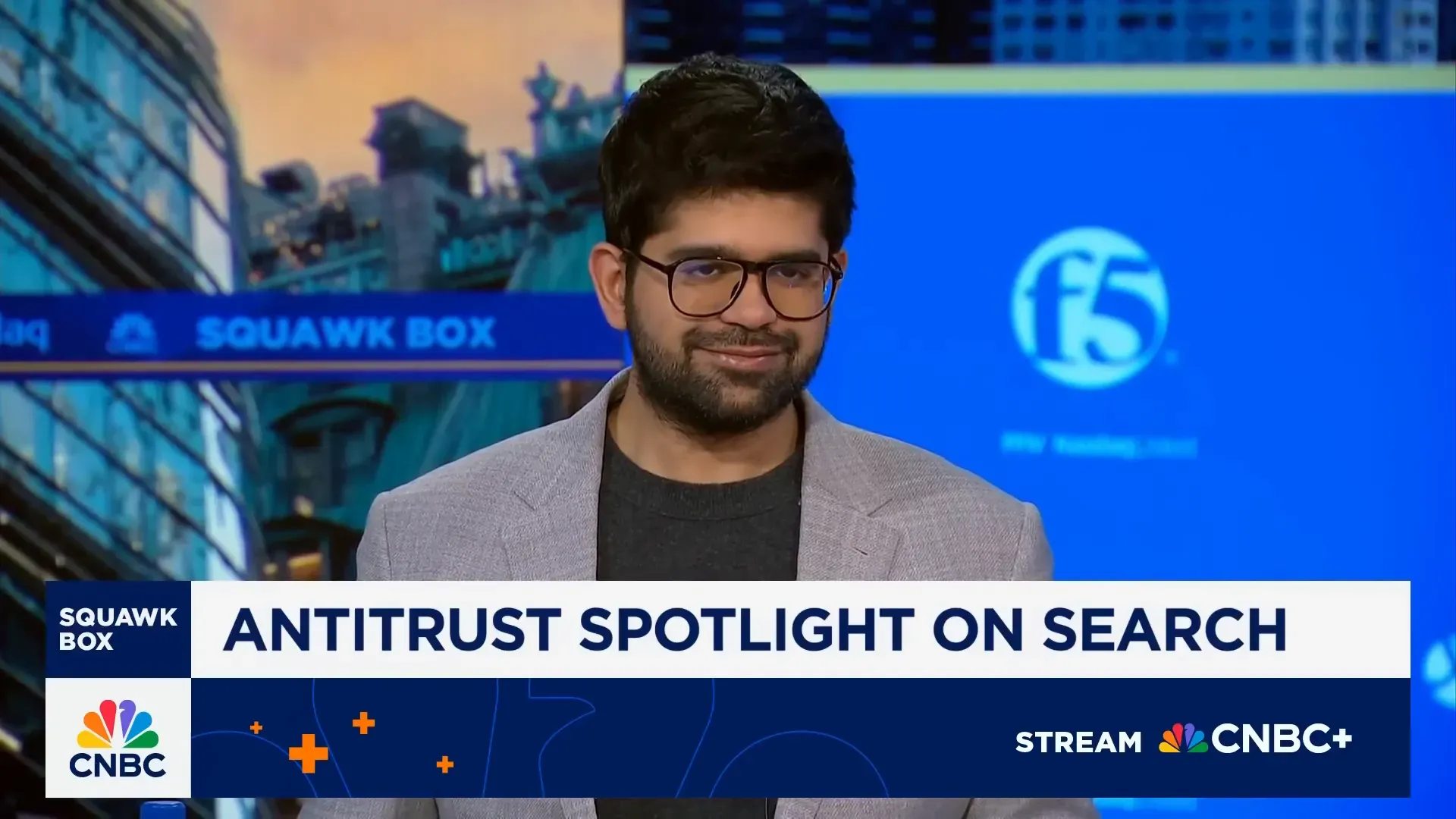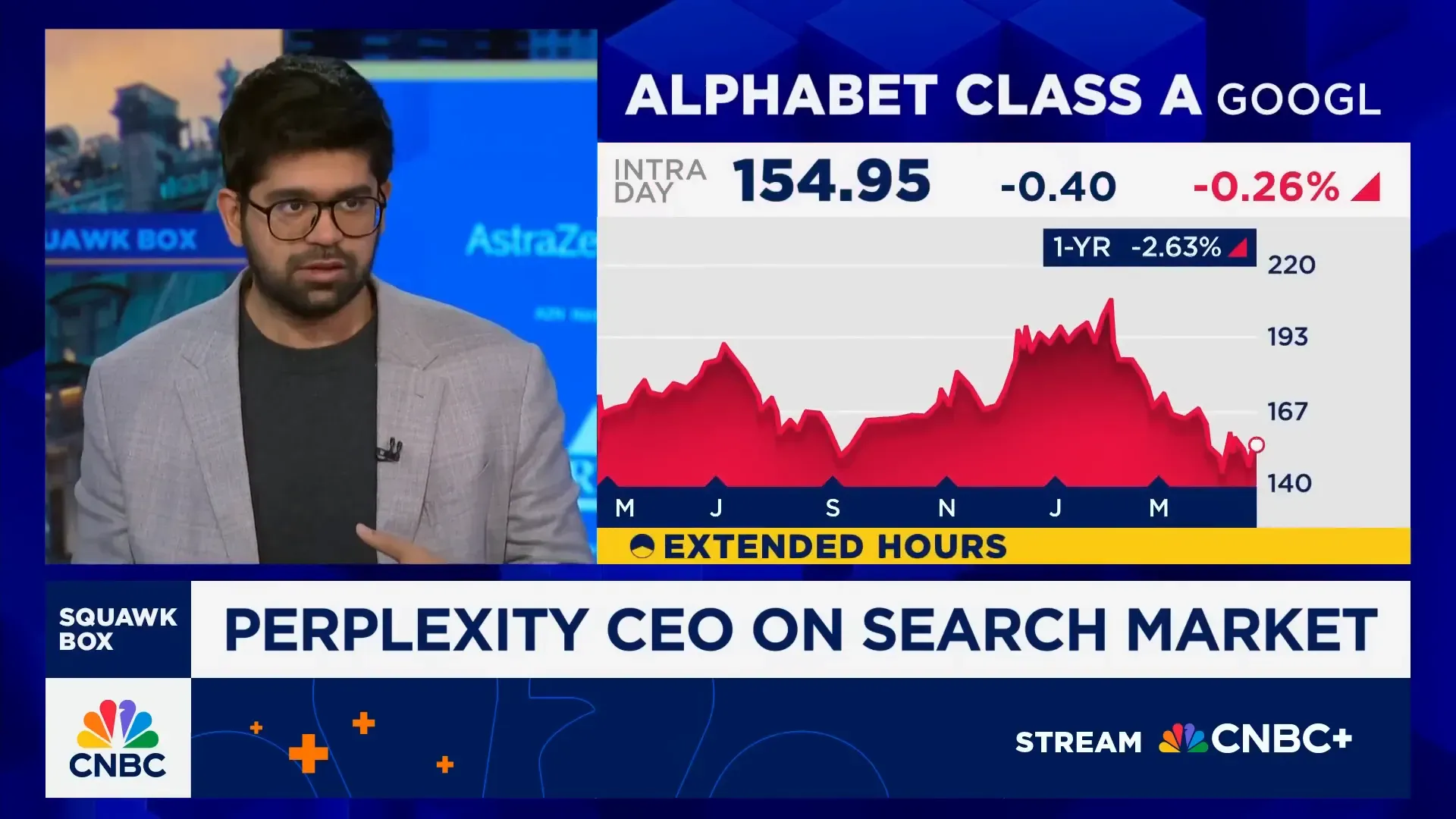In an era where AI is rapidly changing the way we find information and interact with technology, we are looking for information and interacting with technology. competition The search market is becoming significantly more intense, especially as Google faces a monopoly lawsuit that has a significant impact on the search industry.
Recent Interviews With Arvind Srinivas, co-founder and CEO of Perplexity, an AI company that is growing and rapidly vying for market share. He gave an overview and deeply analyzed the direction of competition in this market.

Perplexity vs. the Battle for AI Search Market Share
"On the day Perplexity was introduced through TV shows, there was a exponential increase in daily revenue (ARR)," Arvind said, demonstrating the platform's rapidly growing demand and popularity.
While Perplexity has strengths in speed and accuracy, Arvind acknowledges that the market is evolving towards being a "commodity."
As a result, the long-term difference in service will not only be based on accuracy or speed.
Differentiating through "Actions" and "Agents"
Arvind emphasized that the future of AI in the search market will rely on more complex tasks such as multistep chain workflows and services that go beyond just answering questions.
Rather, it helps plan, analyze, and act on real-world scenarios, such as "reading all my reports, keeping up with relevant stock news, analyzing portfolios, and providing in-depth advice like a wealth manager."
This is where Perplexity is developing "agents" that can work in a unified way during a search session.
Instead of just answering a single question, it can open a browser and work to link multiple sources of information throughout the search. for example Comet Browser It combines AI with browsers to provide a deeper and more efficient search experience.
Perspectives on OpenAI's acquisition of Chrome browser
When it comes to the rumors, OpenAI Arvind clearly commented that Perplexity is not interested in buying Chrome and does not recommend that the US government force Google to sell Chrome.
The main reason is that Chrome is based on an open source project called Chromium, which is the foundation of several browsers such as Microsoft Edge and Brave, which Chromium still needs constant care and development.
If Chrome is taken apart without proper care, it can affect the entire web browser ecosystem.
Arvind also noted: OpenAI It doesn't have a strong track record of supporting open source like Google, which means that OpenAI's takeover of Chrome may not be as convincing in terms of maintaining open source and developing a sustainable ecosystem.
Problems and challenges in the Android market
One of the key points that Arvind emphasizes is that Google has control over the market. Android Despite cooperation with mobile manufacturers such as Motorola to pre-install the Perplexity app, Google has not allowed Perplexity's AI app to be the main assistant to replace Google's Gemini.
This situation creates difficulties for competition If OEMs want to change their core AI assistant system, they won't be able to pre-install core apps like Google Play Store, Maps, and YouTube.
This impacts the user experience and prevents the overall application market from growing fully.
Perspectives on Apple and the Opportunity in iOS
For Apple's part, Arvind points out that Apple has a much stricter shutdown system. Android that was once open but is changing in the same direction as Apple.
However, Apple has not changed the default search engine option because Google is still paying to make it the main search engine.
Perplexity has launched an AI assistant on the iOS And I hope that in the future there will be opportunities to join the system like Siri Or Apple Intelligence if Apple gives other developers more access to it.

Balance of Competition and Regulation
One of Arvind's interesting views is the need to maintain a balance between competition and government control. He agrees that some of Google's actions are monopolistic, but he also acknowledges that Google has created a lot of good things.
Therefore, separating the Google company into parts may not be the best solution, but what is important is to create fair competition and give consumers more choice. Especially in the Android market, which has the problem of restricting the access of other AI apps.
Technical terms you should know
- API (Application Programming Interface) : A set of commands that allow software to communicate and work together.
- LLM (Large Language Model) : A large AI language model trained to understand and generate text in human language.
- Search Grounded LLM : An AI language model that can extract real-time data from the internet and provide a referential answer.
- Chromium : An open-source browser project that is the base of Google Chrome and other browsers.
- OEM (Original Equipment Manufacturer) : Manufacturer of the source device, such as a manufacturer of mobile phones with software installed.
Conclusion from Insiderly
Competition in the market AI Search is changing rapidly. From focusing on providing quick and accurate answers. It is evolving to provide complex services with multi-step automation capabilities (actions) that will help users experience a deeper and more efficient experience.
Perplexity, which is one of the key players. It is making a difference by developing agents that can link data across multiple periods, and is preparing to launch the Comet browser that will support this technology.
In terms of competition with Google, despite the challenges of monopoly and market control by Google, especially on the Android side.
But maintaining balance and allowing for fair competition is essential. Splitting up large companies into parts may not be the best solution right now.
lastly Perplexity's hope is that both Android and iOS will give users the freedom to choose the AI they want for various tasks, which will be a major turning point in the AI industry and the technology market in the future.


